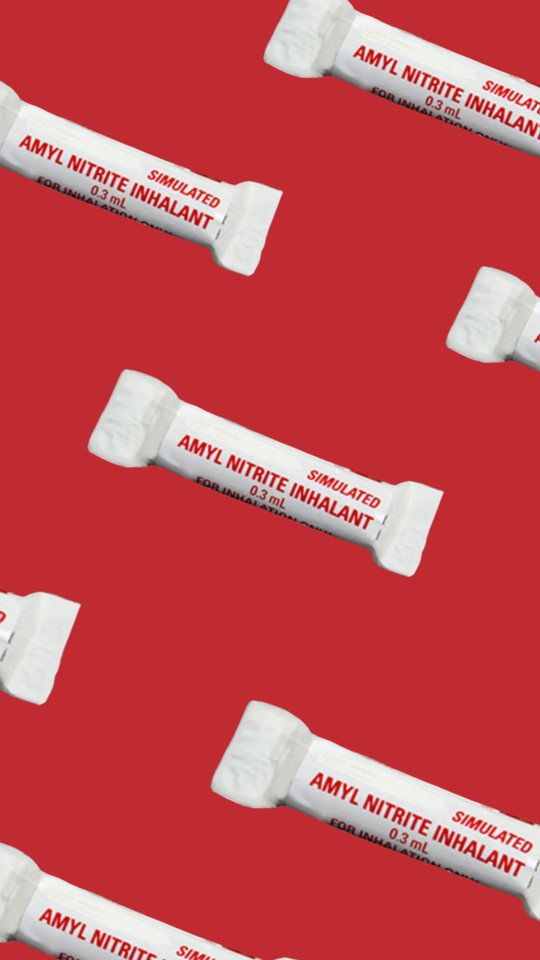Sex, drugs, and staying safer
Originally published by The Level NZ.
We firmly believe in a harm-reduction approach when it comes to talking about sex and drugs. While we have all likely been brought up on messages that ‘drugs are bad for you’, we know that telling people not to do something is the quickest way to encourage them to do exactly that – also, not all drugs are created equal, and some have more risks than others. Taking drugs can also be a way for some members in our communities to feel more confident and empowered.
Instead, we believe it’s important to arm our communities with the knowledge and tools to stay as safe as possible while engaging with sexualized drug use, and providing links to necessary support if folks feel that this is right for them, and they’re in a position to take action.


Staying safe while having sex
Condoms and lube
Having sex while on drugs may make it more likely for you to have condomless sex. Listen, we get it. Condoms aren’t for everyone, and we should all have the freedom to choose a prevention method that works for us and our sexual partners. But if you do normally have sex with condoms, consider having that conversation with potential partners ahead of time – while you’re sober – to ensure everyone is on the same page. You might also want to have them laid out on a table for easy access.
Lube is also very important when having sex on drugs because many drugs can cause your body ‘down there’ to feel a little dry. Having lots of lube – whether or not you’re fucking with condoms – is the best way to ensure a smooth and pleasurable experience for all involved.
Testing
If you’re on PrEP, you should already be getting tested for HIV and all STIs every three months – but even if you are, you can still get tested above and beyond this if you’re regularly engaging in condomless casual and/or anonymous sex, or if you experience any symptoms.
You can use our testing frequency calculator if you’re not sure how often you should get tested (it differs depending on a variety of factors) and it might also pay to read up on the window periods of STIs (i.e. the time it takes for them to show up in a test), as this is also variable.
NB: We have partnered with The Level NZ to host several ‘Test your gear, test yourself’ events throughout the year – so you can test your drugs and test yourself at the same time at our centers.
PrEP
Even if you’re a regular condom user, being on PrEP is still a great way to stay safer – not only can PrEP be up to 99.9% effective at preventing HIV (with perfect use), it also ensures you’re in a three-month testing routine.
NB: Engaging in PnP, and/or having longer sessions, may make it harder to adhere to your medication, especially if you're using event-based (2-1-1) PrEP. If PrEP is your only usual prevention method, consider combining this with other methods when adding drugs to the equation.
PEP
If you are worried you may have been exposed to HIV, you can get access to PEP; the morning after pill for HIV. Since July 2022 the criteria for PEP was expanded, so this is now easier to access around the motu; remember PEP needs to be taken within 72 hours of exposure, so don’t delay if you think you may be at risk.


Staying safe while taking drugs:
There is no such thing as a ‘safe’ level of drug use – but there are ways to stay safer while engaging in sexualized drug use. Some of the risks to consider include:
- Drug overdose
- HIV transmission
- STIs
- Non-consensual sex
- Addiction
If you do choose to go ahead, the harm-reduction advice on this page is essential. Start small and get to know your limits. Look after the people around you and keep checking in with your sexual partners, to make sure that consent continues to be given.
General harm reduction tips
- Try and eat, even if you don't feel like it at the time, and prepare some meals/make sure there is food in your fridge for when you come down
- Drink plenty of water
- Set limits for yourself, and stick to them
- Don’t let other people pressure you into doing drugs
- Try to avoid mixing drugs with other drugs, and be informed about the risks if you do
- Try to be aware of exactly what you are taking and how much you are taking
- Tell a trusted friend what you're planning to use - just in case you need medical attention
Taking a breather
Methamphetamine, especially, can have a huge impact on your body and mind. Staying up for a day or two and not having a strong appetite will mean you need to catch up on the sleep and food you missed. It can also put a lot of pressure on your heart, especially if you're also using Viagra.
Having a break is very important, allowing your body a chance to recover and your brain to restore its dopamine reserves, a hormone linked to making us feel good. Using more than 3 times a week is linked to dependence and long-term harm is likely. A good rule of thumb is: if you use once a week, give yourself another week to recover, if you use once a month, give yourself a month.


Overdoses from depressants (GHB, alcohol)
If someone is experiencing any of these symptoms:
- Confused and vomiting
- Breathing slowly
- Pale skin
- Blue lips
- Losing consciousness
- Having seizures
Then you should:
- Call 111 for an ambulance
- Stay with them
- Keep them awake and warm
- Give them water
- Lay them on their side with open airways
Overdoses from stimulants (methamphetamine, cocaine, MDMA)
If someone is experiencing any of these symptoms:
- A fast and irregular heartbeat
- Excessive sweating
- Chest or arm pain
- Difficulty breathing
- Extreme agitation and paranoia
- Seizures
Then you should:
- Call 111 for an ambulance
- Stay with them
- Find a safe place to calm down and reassure them
- Lay them on their side with airways open
It’s important to call 111 for an ambulance as soon as you suspect someone is overdosing; the sooner they receive medical attention the better.
Support:
You can find a full list of support providers and resources here.


